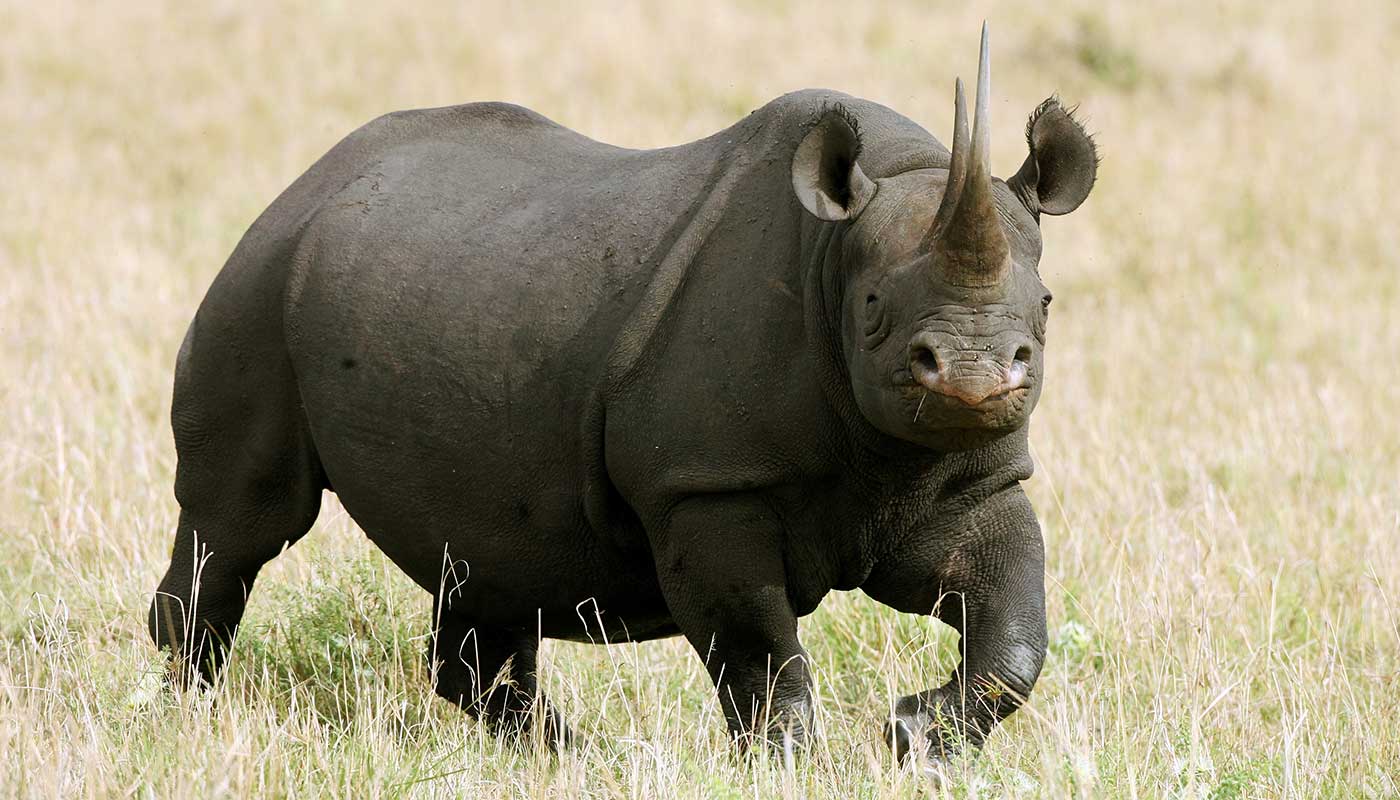Is going on safari ethical?
Wild animals more likely to be aggressive to other herd members when people nearby, says new study

A free daily email with the biggest news stories of the day – and the best features from TheWeek.com
You are now subscribed
Your newsletter sign-up was successful
Tourists who go on safari may be damaging elephants’ health, stressing them out and making them more violent both towards people and each other, according to new research.
Wildlife tourism can help protect animals and their habitats by generating income for conservation and providing stable work to local economies. But as safaris become more popular worldwide, “it’s worth remembering that we often don’t know how tourism affects the animals we observe”, say Isabelle Szott and Nicola Koyama, both conservation biologists at Liverpool John Moores University, in an article on The Conversation.
Do safaris harm wildlife?
The Week
Escape your echo chamber. Get the facts behind the news, plus analysis from multiple perspectives.

Sign up for The Week's Free Newsletters
From our morning news briefing to a weekly Good News Newsletter, get the best of The Week delivered directly to your inbox.
From our morning news briefing to a weekly Good News Newsletter, get the best of The Week delivered directly to your inbox.
A number of studies have found that wildlife tourism can cause fear, alertness, aggression, vigilance and stress behaviour in a variety of animals commonly seen on safari.
Szott and Koyama, whose new research is published in the Journal of Zoology, warn that this can put the animals at risk.
“We found that elephants were more likely to be aggressive towards other elephants in months when tourist numbers in the park were high,” they say on The Conversation. Elephant herds “were also more likely to move away from tourist vehicles when there were more vehicles present”, the pair add.
The two experts suggest that consistent minimum distances between animals and humans be introduced to guidelines for wildlife viewing in order to alleviate the potential for conflict.
A free daily email with the biggest news stories of the day – and the best features from TheWeek.com
Their warnings are echoed by Audrey Delsink, head of wildlife for the Africa division of charity Humane Society International.
Delsink told The Independent: “Stress can be caused to animals if the guide or tourists approach too close to the elephants, coming between females and calves or cutting off exit routes, and it’s that sort of irresponsible behaviour on the part of people that encourages negative responses in elephants.
“Wildlife tourism should not in itself cause an issue if conducted according to strict codes of conduct regulating how elephants should be viewed, such as safe-distance observation.”
Should you go on safari?
Tourism Concern, an organisation dedicated to promoting ethical tourism, offers a guide to how to travel on safari ethically.
“During your safari, don’t push your guides to get closer and keep quiet during your observation, as you don’t want to disturb the animals,” says the charity’s website. The organisation also notes that to “prevent poaching, game reserves need to hire more rangers and increase monitoring”, and adds that people “can help support these efforts by participating in game drives to games reserves and national parks most affected by poaching”.
Both Tourism Concern and other experts recommend that tourists support specialist conservation initiatives, put in place to protect certain animals.
Tourism “can be a great conservation tool as long as it is monitored closely, and measures are taken to alleviate the potential pressures it can put on animals”, add Szott and Koyama.
-
 The ‘ravenous’ demand for Cornish minerals
The ‘ravenous’ demand for Cornish mineralsUnder the Radar Growing need for critical minerals to power tech has intensified ‘appetite’ for lithium, which could be a ‘huge boon’ for local economy
-
 Why are election experts taking Trump’s midterm threats seriously?
Why are election experts taking Trump’s midterm threats seriously?IN THE SPOTLIGHT As the president muses about polling place deployments and a centralized electoral system aimed at one-party control, lawmakers are taking this administration at its word
-
 ‘Restaurateurs have become millionaires’
‘Restaurateurs have become millionaires’Instant Opinion Opinion, comment and editorials of the day
-
 Trump’s fuel blockade puts Cuba in crisis mode
Trump’s fuel blockade puts Cuba in crisis modeIN THE SPOTLIGHT Plummeting tourism, scrambling airlines and rolling blackouts are pushing Cuban society to the brink
-
 Epstein files topple law CEO, roil UK government
Epstein files topple law CEO, roil UK governmentSpeed Read Peter Mandelson, Britain’s former ambassador to the US, is caught up in the scandal
-
 Iran and US prepare to meet after skirmishes
Iran and US prepare to meet after skirmishesSpeed Read The incident comes amid heightened tensions in the Middle East
-
 Israel retrieves final hostage’s body from Gaza
Israel retrieves final hostage’s body from GazaSpeed Read The 24-year-old police officer was killed during the initial Hamas attack
-
 China’s Xi targets top general in growing purge
China’s Xi targets top general in growing purgeSpeed Read Zhang Youxia is being investigated over ‘grave violations’ of the law
-
 Panama and Canada are negotiating over a crucial copper mine
Panama and Canada are negotiating over a crucial copper mineIn the Spotlight Panama is set to make a final decision on the mine this summer
-
 Why Greenland’s natural resources are nearly impossible to mine
Why Greenland’s natural resources are nearly impossible to mineThe Explainer The country’s natural landscape makes the task extremely difficult
-
 Iran cuts internet as protests escalate
Iran cuts internet as protests escalateSpeed Reada Government buildings across the country have been set on fire